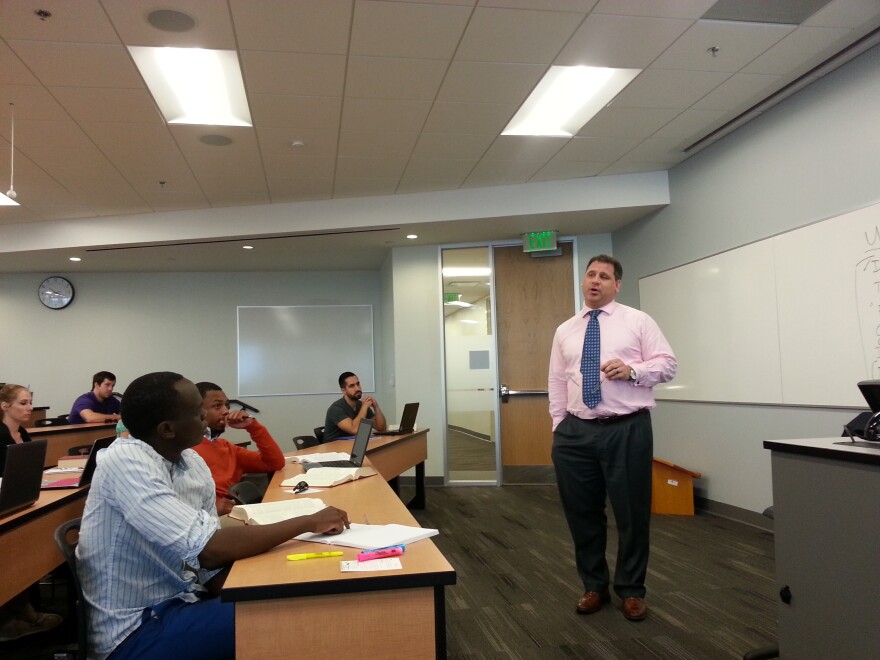The for-profit, Charlotte School of Law’s accreditation is in jeopardy. This week, the American Bar Association put the school, the state’s largest law school with about 800 students, on probation over concerns that unqualified students were being admitted and that too many graduates were not passing the bar exam.
Charlotte Law School Dean Jay Conison says the probation came as a surprise even though ABA officials warned the school last month that they were not in compliance in terms of admissions policies and bar exam passage rates.
“We had been engaged in making improvements well before we began to have conversations with the ABA,” Conison said. “Probation did honestly come as a surprise to us. We had no notice or reason to believe that that might happen.”
But others were not surprised, such as Kyle McEntee, executive director of the watchdog group Law School Transparency.
“Charlotte Law School has been performing very badly for a number of years now. In July 2016, the last time the bar was given in NC, Charlotte Law had a bar passage rate of 45 percent of first time bar takers, which is about 20 percent less than the average in the state.” McEntee said. “That number is slightly down from July 2015 when the average was 47 percent, also about 20 percent less than the state average.”
Dean Conison says they are offering more labs, individualized tutoring and bar exam prep courses that students take all three years, to improve their bar exam passage rates.
The ABA is also concerned about the caliber of students Charlotte Law is admitting. The school’s students' LSAT scores are much lower than most law schools. Conison says they are offering more scholarships to attract students with higher LSAT scores and says admissions officers are in the field more to sell the school to them.
McEntee accuses school officials of exploiting students and only being concerned about the federal loan dollars they bring in. It costs about $44,000 to attend Charlotte Law. McEntee says many leave with large debts and find it hard to get a job in the legal field. In 2014, he says only 34 percent found full-time jobs that required passage of the bar exam. He’s not optimistic about the school’s future.
“I don’t think Charlotte Law will be able to pull out of this hole,” McEntee said. “I think they will take advantage as long as they can until the ABA cracks down in final terms and at that point they’ll wash their hands of it, sell their real estate and move on. They’re following the same playbook as the ITTs of the world.”
In September, ITT Tech, also a for-profit school, abruptly closed all of its 130 campuses.
As for Charlotte Law, the probation order requires the school to do several things by Dec. 15. Among them; submitting admissions data and policies to ABA and providing students written updates on bar passage rates at the end of each semester, until its probation is lifted.
If the school loses its ABA accreditation, graduates will not be allowed to take the bar exam in North Carolina and most other states.



